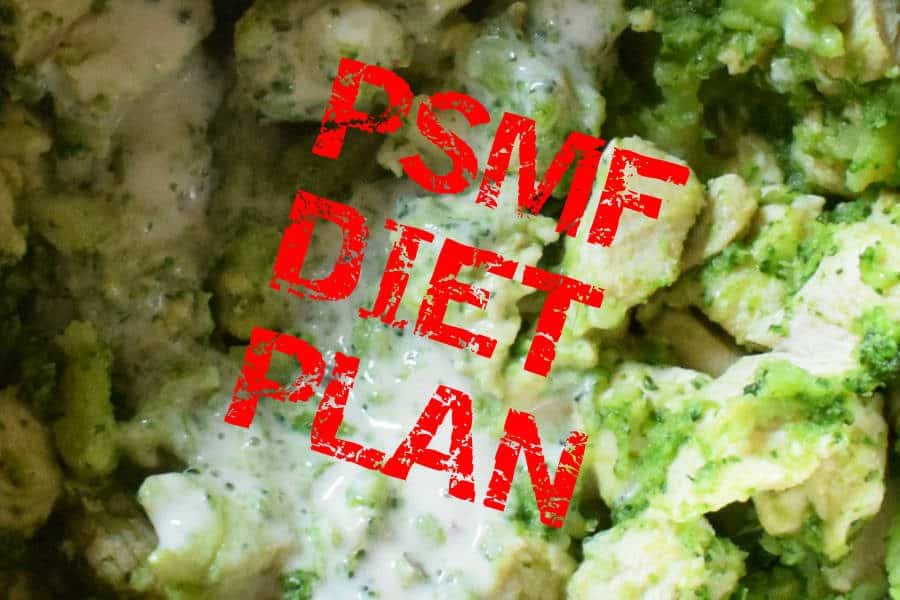
Keto Chocolate Rice Pudding (With Cottage Cheese And Peanut Butter)
January 14, 2019
Keto Peanut Butter Cheesecake (No-Bake, With Chocolate Crust & Topping)
February 10, 2019TOP 20 intermittent fasting tips that will let you do intermittent fasting the right and correct way.
Are you new to intermittent fasting? Are you ready to give intermittent fasting a try? Or you already have some experience with it and just want to make things more perfect? If you answered “yes” to any of these questions, you are just in the right place.
Intermittent fasting (IF) has become extremely popular because of lots of health and other benefits it offers. Autophagy, improved cognition, effective weight loss or type 2 diabetes control are just a few examples of what intermittent fasting can do. And it can do way more!
However, if you do it incorrectly and make some common mistakes, intermittent fasting will bring fewer benefits and be less effective. It may even do you more harm than good. That’s why I want to share with you the 20 most important intermittent fasting tips and tricks of all time.
These intermittent fasting tips come from my almost one-year experience with intermittent fasting and studying tons of materials on IF and fasting in general (books, lectures, movies and so forth).
FYI: I committed lots of mistakes on my intermittent fasting journey (both less and more serious ones) and the purpose of this guide is to make sure you avoid them.

Ready to discover top 20 tips for intermittent fasting?
#1 Make Sure Intermittent Fasting Is OK For You (Not Everyone Should Do It)
Intermittent fasting is getting more and more popular because it brings tons of health benefits and is a super effective weight loss tool at the same time. However, that doesn’t mean it’s for everyone. Before you decide to give intermittent fasting a try, make sure you can really do it.
Of course, each case is different but generally you shouldn’t do intermittent fasting if any of the below applies to you:
- You are underweight (your BMI is below 19%)
- Your body fat (BF) percentage is below 15% (women) or 5% (men)
- You have type 1 diabetes
- You are on any prescribed medications
- You have serious hormonal imbalance (especially if you are a woman)
To be on the safe side, I recommend you consult your physician before you start intermittent fasting.
#2 Start Slowly & Do It A Few Times A Week (Let Your Body Get Used To It)
If you have no previous experience with fasting, it’s very important to start slowly. That’s one of the most important tips to start intermittent fasting. Fasting will come as a shock to your body which is probably used to eating… every few hours. This will put stress on your system and may cause you to feel very bad, sluggish, nauseated and… you will get discouraged.
I suggest you start from the basic version of intermittent fasting, that is, 16/8 (Leangains) where you fast for 16 hours and eat for 8 hours. You can start from fasting a few times a week (every other day, for example). There is no need to do it every day.
If a 16-hour fast seems too long, simply start from delaying your breakfast by 30 minutes a day until it becomes your lunch (at 1 PM, for example).
#3 Fast All The Time You Fast (Beware Of What Can Break Your Fast)
Intermittent fasting works whether you like it or not. People who say it doesn’t work either lie or they simply aren’t really fasting during their fasting window. In many cases folks accidentally break a fast by eating some snack or drinking a beverage containing calories and they don’t even realize it.
Basically, anything that has calories or lots of artificial sweeteners will break your fast and stop any positive processes induced by intermittent fasting (including rapid fat burning or autophagy).
That’s why the golden rule is to FAST ALL THE TIME YOU FAST. This means you cannot consume any calories during your fat. It’s best to stick to water, black coffee and herbal tea.
#4 Drink Allowed Drinks (Unless You Are Doing A Dry Fast)
There are lots of different types of fasts both when it comes to their duration and types of allowed foods or liquids. The most extreme version is, of course, dry fasting which doesn’t allow for any food or liquid intake.
ABC Keto is more about a healthy balance and avoiding extremes, so I recommend the most popular version of fasting which lets you drink low or non-calorie drinks to keep you hydrated. The most popular allowed drinks are water, unsweetened tea and back coffee.
To learn more about what you can drink during intermittent fasting, check my guide to intermittent fasting drinks with more examples of allowed and forbidden drinks.
#5 Control Hunger Wisely (Top 5 Intermittent Fasting Hunger Tips)
There may be hunger pangs and cravings during your fasting window (especially if you are only beginning). However, hunger comes in waves and it goes away relatively quickly, so you just need to train your brain to fight it effectively.
You need to know the difference between real hunger (e.g. after an intensive workout) and just cravings (for carbs and sweets).
Here are the top 5 intermittent fasting hunger tips:
- Drink a glass of carbonated water. It will nicely full your stomach.
- Drink a glass of hot green or black tea. This will warm up your stomach and let you feel less hungry.
- Drink a cup of black coffee. Caffeine is a great appetite suppressant.
- Keep yourself busy and do some productive work. Your mind is razor-sharp and alert during fasting so make the most use of it. You will have a delicious reward later on.
- Drink bulletproof coffee. Fat has almost no influence on insulin levels so you (conditionally) you can have keto or bulletproof coffee to help you get through the fast. Remember that keto coffee has calories and technically breaks a fast.
If you feel very bad, faint, extremely dizzy or nauseated, then IMMEDIATELY stop the fast and eat your first meal. Always listen to your body and avoid extremes. You can start over the next day.
#6 Make The Most Of Your Fasting Window (Get The Work Done)
People eating 5 or 6 meals a day usually have to structure their whole day around food and meal timing. Intermittent fasting frees you from that and gives you many hours for… doing whatever you want.
Most people do intermittent fasting by skipping their breakfast so that their first meal is usually around noon. Your mind will always be super-sharp in the morning hours before your first meal. It means you get 4-8 free and super-productive hours every day you do IF.
Make the most of these hours, complete your tasks at work and then have your first delicious meal.
#7 Break Your Fast Gently & Wisely (To Avoid Digestive Problems)
This is probably one of the most important intermittent fasting tips. Eating your first meal too quickly is a top mistake most newbies make. This almost always ends with a stomach ache, digestive problems and sometimes diarrhea.
Have you ever heard about mindful eating? That’s what I want you to practice. Take a few breaths before your meal. Chew the food slowly and enjoy its taste. Don’t stuff yourself with as much food as possible.
If you take your time while eating, you will naturally eat less. Your body needs about 20 minutes before it sends the satiation signal to the brain. Check out this article about mindful eating and ways to practice it.
#8 Eat Real And Healthy Foods (A.K.A. Avoid Junk)
Intermittent fasting lets you lose weight effectively and almost effortlessly. You don’t really need to know any intermittent fasting tips for weight loss because that’s what it does by default. This eating pattern forgives much more than other “diets” and allows for weekly cheat meals or cheat days.
This, however, is no excuse for eating junk food. To reap the health and weight loss benefits of intermittent fasting, you need to eat whole and healthy foods. I also recommend combining intermittent fasting with a keto diet (more about it below).
Leave junk food for your cheat meals or, better, give it up entirely. There are tons of healthy junk food replacements that taste just as good and provide nutrition instead of poisoning you.

Will you believe me if I tell you that this cake is very healthy, has no sugar and almost no carbs? And it tastes way better than junk foods.
#9 Make Sure To Use Intermittent Fasting For The Right Reasons (To Help You Achieve Your Goals)
Whenever you embark on something new, you must have a goal or reason to do it. People do intermittent fasting to improve their health, to shed extra pounds, to stay super slim or to improve cognition and sharpen their mind.
Make sure your intermittent fasting goal is a healthy one and you don’t do it to, for example, compensate for binge eating or stuffing yourself with junk foods. If you have a history of disordered eating habits, I don’t recommend doing intermittent fasting.
Remember that intermittent fasting is just one of many great tools available out there. It will help you only if it’s right for you and you use it in a healthy way.
#10 Find Ideal Timing (That Suits Your Lifestyle & Goals)
Different people like to do intermittent fasting differently. Some feel great if they skip their breakfast while others prefer skipping lunch or supper. There is no one size fits all when it comes to intermittent fasting.
To be successful with IF, you need to experiment and find what time frames work the best for you. Try out different intermittent fasting protocols and different meal timings to see what works best for you, is compliant with your lifestyle and helps you achieve your goals.
I’ve experimented with probably all the possible intermittent fasting protocols and I feel best if I have a 6-hour eating window which starts around 2-3 PM and ends around 8-9 PM. I am never hungry in the morning and I am unable to fall asleep with an empty stomach, so this works perfectly for me.

Unfortunately, I am unable to fall asleep if I don’t eat such a huge meal before going to bed. This is tofu with pumpkin, turmeric and other veggies.
#11 Listen To Your Body & Be Flexible (Don’t Overdo It)
You body (especially if it’s addicted to sugar and carbs) will send you false signals and make you crave unhealthy foods. However, not all the signals it sends are false, so you must listen to it carefully.
It’s quite easy to overdo it with intermittent fasting and go to extremes once you begin to see the first positive results (especially losing weight). If you ever start to experience some weird symptoms or feel very bad, break your fast immediately and have your regular meal.
#12 Remember That Calories Still Matter (Don’t Forget About Them)
Yes, it’s true that intermittent fasting is much more forgiving when compared to other diets. It may even let you totally eradicate most negative effects of a cheat meal or a cheat day. You just fast a bit longer than usual and you won’t put on weight.
However, this doesn’t mean that calories don’t matter at all and you can eat as many of them as you want during your feeding window. If you eat 5000 calories a day, you will gain fat. If you eat less or around your maintenance level, you will probably be losing weight. There is no way around.

I could get away with eating this on a weekly basis (before going keto) and fasting. Fortunately, I grew up and started a keto diet.
#13 Don’t Become A Prisoner To Intermittent Fasting (Let It Free You, Not Imprison You)
Intermittent fasting is supposed to give you more freedom and more free time because your life isn’t revolving around meals anymore. Unfortunately, for many people the reverse happens and they become prisoners to their eating and fasting windows.
They won’t start eating until exactly 16 hours have passed. Neither will they eat if their eating window has just ended. Some people even use special intermittent fasting apps that let them control their eating times down to minute.
I was a great fan of intermittent fasting apps until I realized that I had become somehow imprisoned by them as well. I obsessed a bit about always clicking this “start eating” and “start fasting” button and it became a bit overwhelming.
Remember that it doesn’t matter if you eat 5 or 30 minutes earlier or later. If you do intermittent fasting consistently and apply the 80/20 rule, you will be successful (and free).
#14 Be Patient To Reap Most Of The Benefits (Become Adapted At First)
Many people see the first positive effects of intermittent fasting after a couple of days. Others have to wait even a few weeks before real weight loss and changes begin.
If you’ve been running on sugar most of your life and eating 5-6 meals a day, your body is so NOT USED to fasting.
Whether you do a keto diet or not, you will achieve mild ketosis in your fasting window (check the keto diet section to learn more about ketosis and how it works). This means you will be switching from sugar burning to fat burning and your body needs time to adapt to it.
Give yourself a lot of time, be patient and persist. The effects you desire will come. And they will come huge.
#15 Combine Intermittent Fasting With A Keto Diet (To Get Maximum Benefits)
A ketogenic diet is all about keeping your blood sugar and insulin levels low so that it mimics fasting. That’s why both intermittent fasting and a keto diet have similar benefits, such as, effective weight loss, type-2 diabetes control or improved cognition.
If you want to double the positive effects, you should combine intermittent fasting with a keto diet. Since a keto diet eliminates carbohydrates and so any cravings, it will be much easier for you to complete your fasts or go from one meal to another.
If you are new to both intermittent fasting and a keto diet, I suggest starting from a keto diet, adapting to it and adding intermittent fasting after 6-7 weeks.
#16 Work Out In A Fasted State (For Extreme Weight Loss And Body Composition Improvements)
If you work out regularly or are an athlete, you should really try working out in a fasted state. The best time to do it is usually towards the end of your fast, i.e. in the morning a few hours before your first meal.
The best type of exercise to do when fasted is either cardio or strength training. This way you will mostly be using your fat reserves for energy. If you want to keep burning fat for even longer, don’t eat for a couple of hours after your fasted workout.
I usually do a running workout at 6 AM and don’t eat until 2-3 PM. This gives me about 7-8 hours of extra efficient fat burning. This works miracles!

It’s not a problem for me to do a 30-km run in a fasted state. But it took me some time to get used to it.
#17 Do A Longer Fast Occasionally (To Reap Even More Health Benefits)
Longer fasts (lasting more than 24 hours) can give you a lot of health benefits greater than what daily intermittent fasting can do.
For example, a 4-day fast can totally “reset” your immune system and give you a nice metabolic boost. If you have trouble getting into ketosis, it’s enough to do a 72-hour fast you will be there (no matter what).
It’s a good idea to do a longer fast every few weeks or months. However, remember that this is an advanced tool for those who already have some experience with fasting. Yes, longer fasts are highly effective but most people can also achieve all of their weight loss and health goals just with daily intermittent fasting.
#18 Watch Your Eating Habits Closely (Disordered Eating Habits Are Easy To Develop)
Most people who try intermittent fasting are able to use it to help them achieve their goals, gain more free time, feel more free and even save money on food (that’s a big one). I’ve already touched upon this in earlier tips but the topic of disordered eating habits is so important that it deserves a separate point.
If you ever notice that you start to obsess about food, overeat and binge (just after your break a fast) or unnaturally extend your fasts, then stop doing intermittent fasting. IF is a tool to help you reformulate your relationship with food and practice mindful eating. If it doesn’t serve this purpose, then it means it’s not right for you.
#19 Remember Intermittent Fasting Is Just One Of Many Ways (Not The Only Way To Get Ripped)
Intermittent fasting is becoming more and more popular because it’s highly effective for weight loss (click to check the whole weight loss section), fat burning and body composition improvements. The truth is that most people do intermittent fasting because they want to lose weight and look like million dollars.
However, some people cannot do IF either because of some health condition they have or because they have a history of disordered eating habits. If you are one of these people, that’s not the end of the world!
You can still lose weight, get ripped, look sexy and be healthy. You just need to use a different tool. Remember that intermittent fasting isn’t the only weight loss tool out there.
#20 Bonus Intermittent Fasting Tip: Don’t Forget To Have A Cheat Day Or Meal Now And Then (Because IF Allows For More)
The biggest advantage of intermittent fasting is that it’s highly forgiving. Even if you cheat one day, you can usually completely undo the damage by simply extending your fast to, say, 24 hours. Intermittent fasting works with your hormones so calories still matter but they don’t matter as much.
If you have a cheat day where you eat tons of foods and desserts but they are all keto-friendly, the chances are you will not stop fat burning or reverse your weight loss progress. What’s more, if you are on a caloric deficit, a high calorie day may give your metabolism a nice boost and let you burn fat more quickly even a few days after.
Having something to wait for (your favorite keto pancakes, for example) is also important from a psychological standpoint.
That’s why my bonus recommendation is to have a cheat day or cheat meal once a week. If you do this wisely, it will help you burn fat more quickly and efficiently. In the long run it will let you stay on track and achieve all your goals.

Intelligently structured cheat meals or cheat days can actually be very helpful.
Bottom Line
This list of intermittent fasting tips, of course, isn’t complete but it addresses the main points with which both newbies and those with some experience struggle. If you take care of all of these points, you will be among the few people who do intermittent fasting the correct way.
Do you think some other tips for intermittent fasting should be added to this list? Is some important point missing? Did this list help you and your friends? Feel free to share your thoughts and let me know what you think. I would love to hear from you.





4 Comments
Very useful tips indeed. Thank you Olga:) Your doing a very good job
Have been doing IF for many years and I’ve managed to keep my body lean and have low BF mainly thanks to occasional cheat meals and cheat days. I literally feel my metabolic rate go up after a cheat day. I have a higher pulse rate the next day and feel hotter than on regular OMAD or TMAD days. Cheating is great and helps!
What can you drink during intermittent fasting? Simple answer is anything that has no calories and no artificial sweeteners. This one simple rule is enough and you will not make any mistakes.
Hi Catherine 🙂 I couldn’t agree more. That’s exactly how you can summarize the one most important IF tip 🙂